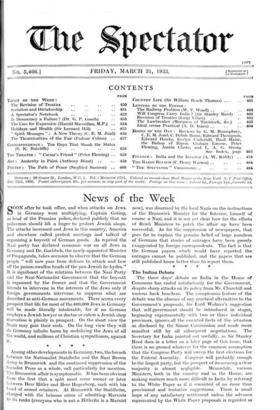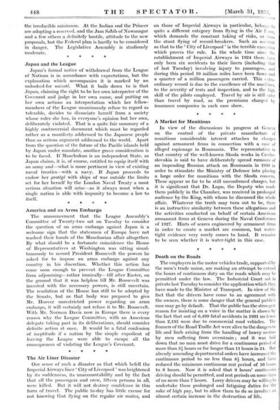The Indian Debate The three days' debate on India in
the House of Commons has ended satisfactorily for the Government, despite sharp attacks on its policy from Mr. Churchill and various back benchers. The conspicuous feature of the debate was the absence of any practical alternative to the Government's proposals, for Lord Wolmer's suggestion that self-government should be introduced in stages, beginning experimentally with two or three individual provinces, ignores all the essential facts of the situation as disclosed by the Simon Commission and made more manifest still by all subsequent negotiations. The Secretary for India pointed out usefully, as Sir Stanley Reed does in a letter on a later page of this issue, that there is no ground whatever for the common assumption that the Congress Party will sweep the first elections for the Federal Assembly. Congress will probably enough be the largest party, but the prospect of its securing a clear majority is almost negligible. Meanwhile, various Ministers, both in the country and in the House, are making matters much more difficult in India by referring to the White Paper as if it consisted of no more than provisional and tentative suggestions. There is small hope of any satisfactory settlement unless the advance represented by the White Paper proposals is regarded as the irreducible minimum. At the Indian end the Princes are adopting a reserved, and the Jam Sahib of Nawanagar and a few others a definitely hostile, attitude to the new proposals, but the Federal' plan is hardly to be considered in danger. The Legislative Assembly is studiously moderate.









































 Previous page
Previous page